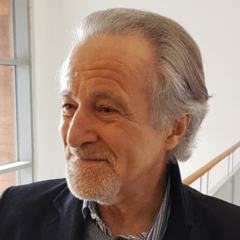You are not currently logged in. Please create an account or log in to view the full course.
Beckett’s Life to 1939
- About
- Transcript
- Cite
Beckett: Waiting for Godot
In this course, Professor Andrew Gibson (Royal Holloway, London) explores Samuel Beckett’s Waiting for Godot. We begin by thinking about Beckett’s life, tracing his development as a man and a writer up to the outbreak of the Second World War in 1939. In the second module, we think about life in France during and after the Second World War, focusing in particular on the gap between the nationalist rhetoric of Philippe Pétain and Charles de Gaulle and the reality of a France that had been humiliated by an invasion and occupation by foreign powers. In the third module, we think about Beckett’s own experiences in the Second World War, before moving on in the fourth module to consider his presentation of human mediocrity and insignificance – what we might call ‘anti-humanism’. In the fifth module, we think about how Beckett finds great humour in his ‘anti-humanism’ (especially through the characters of Vladimir and Estragon) before turning in the sixth module to think about ‘waiting’ and ‘Godot’.
Beckett’s Life to 1939
In this module, we trace Beckett’s development as a man and writer up to 1939, focusing in particular on his early life and education, and his work in Ireland, France and England.
Cite this Lecture
APA style
Gibson, A. (2018, August 15). Beckett: Waiting for Godot - Beckett’s Life to 1939 [Video]. MASSOLIT. https://massolit.io/courses/beckett-waiting-for-godot
MLA style
Gibson, A. "Beckett: Waiting for Godot – Beckett’s Life to 1939." MASSOLIT, uploaded by MASSOLIT, 15 Aug 2018, https://massolit.io/courses/beckett-waiting-for-godot

